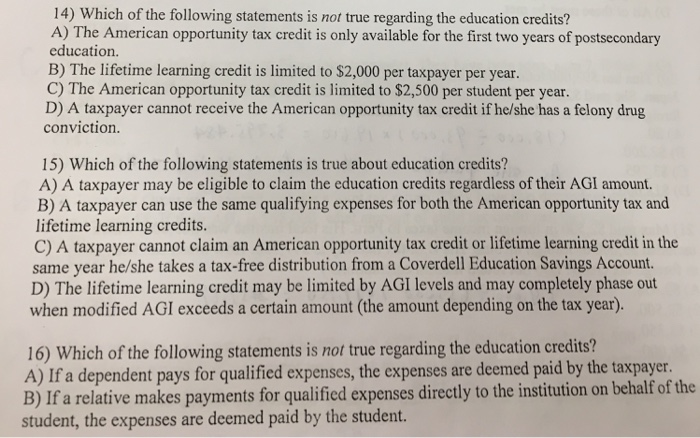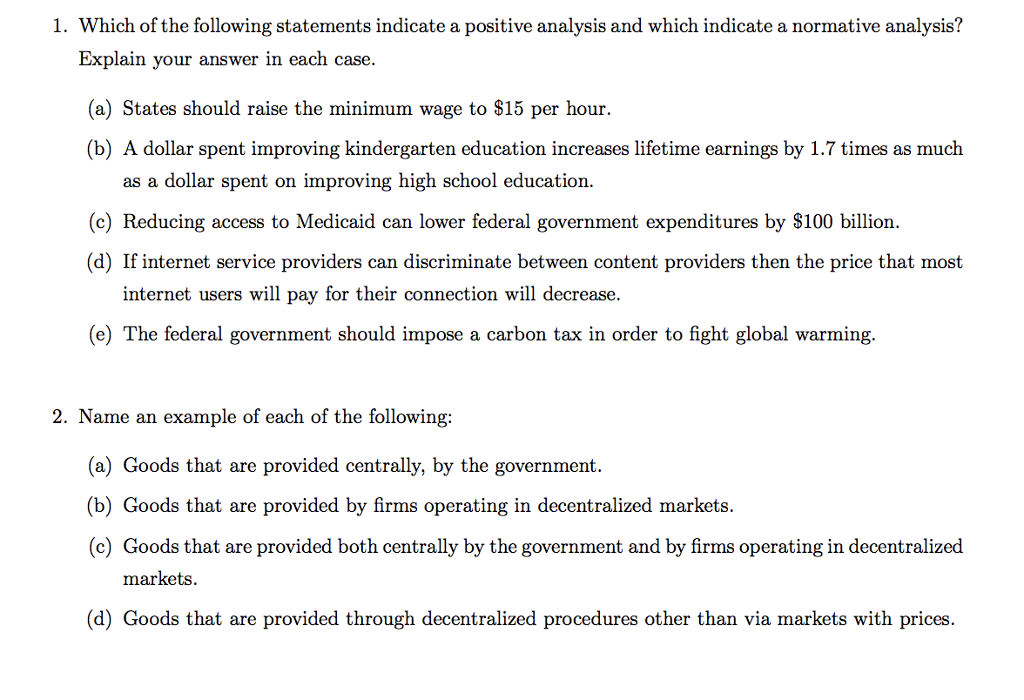
The true statement about education and lifetime earnings is that generally, the more education you receive, the higher your lifetime earnings will be. This is because higher levels of education have been consistently linked to higher earning capacity.
Individuals with advanced degrees, such as Ph. Ds, tend to earn more than those with a master’s degree, and those with a master’s degree typically earn more than those with a bachelor’s degree. On the other hand, individuals with only a high school diploma or no education at all tend to have lower earning capacity.
Therefore, there is a direct relationship between the level of education received and lifetime earnings.
Contents
- 1 The Importance Of Education
- 2 Factors Influencing Lifetime Earnings
- 3 Impact Of Education On Earning Potential
- 4 Education And Career Path
- 5 Policy Implications
- 6 Frequently Asked Questions Of Which Of The Following Statements Is True About Education And Lifetime Earnings?
- 6.1 Which Statements Is True About Education And Lifetime Earnings?
- 6.2 Which Of The Following Statements Is True About Education And Lifetime Earnings Quizlet?
- 6.3 What Is The Relationship Between Education And Lifetime Earnings?
- 6.4 Which Of The Following Statements Is True About Education And Lifetime Earnings Brainly?
- 7 Conclusion
The Importance Of Education
Education holds great importance in shaping one’s earnings throughout life. Generally, the more education one receives, the higher their lifetime earnings will be. This is evidenced by higher earning potentials for individuals with advanced degrees compared to those with lower levels of education.
With increased competition in the job market, formal education is increasingly important for improving lifetime earnings.
Education And Earnings
The importance of education in relation to lifetime earnings cannot be overstated. Over the years, it has been observed that there is a direct relationship between the level of education received and earning capacity. Simply put, generally, the more education you receive, the higher your lifetime earnings will be.
Trends Over Time
When we look at the trends over time, the significance of education becomes even more apparent. Decades ago, formal education may not have been as important to lifetime earnings as it is today. However, in the present age, education has become an essential component of human development and is highly valued by employers.
Table: The Relationship Between Level of Education and Earning Capacity
| Level of Education | Average Lifetime Earnings |
|---|---|
| Ph.D. Degree | High Earnings |
| MSc Degree | Medium-High Earnings |
| BSc Degree | Medium Earnings |
| High School Leaving Certificate | Low Earnings |
| No Education | Lowest Earnings |
As highlighted in the table above, individuals with higher levels of education, such as Ph.D. degree holders, generally earn more than those with MSc degrees. Similarly, individuals with MSc degrees typically make more than those with BSc degrees. On the other hand, individuals with only a high school leaving certificate or no education tend to have the lowest earning capacity.
In conclusion, there is a strong correlation between the level of education received and lifetime earnings. The more education one attains, the higher their earning potential becomes. Therefore, investing in education is not only beneficial for personal growth and development but also holds the key to unlocking higher lifetime earnings.

Credit: www.chegg.com
Factors Influencing Lifetime Earnings
The true statement about education and lifetime earnings is that generally, the more education you receive, the higher your lifetime earnings will be. This is because individuals with higher levels of education, such as a Ph. D. or MSc, tend to earn more than those with lower levels of education, such as a high school leaving certificate or no education.
There is a direct relationship between the level of education received and earning capacity.
Level Of Education
Evidence shows that the level of education a person receives plays a critical role in determining their lifetime earnings. As a general trend, individuals with higher levels of education tend to earn more throughout their careers. For example, those with a Ph.D. degree generally earn more than individuals with a Master’s degree, while those with a Master’s degree typically make more than those with a Bachelor’s degree. On the other hand, individuals with only a high school diploma or those without any formal education often find themselves at the lower end of the earning spectrum.
Choice Of Field
Another factor influencing lifetime earnings is the choice of field or industry. Different fields offer various earning potentials based on demand, market trends, and required skills. For instance, certain professions like medicine, law, and engineering often have higher earning potentials compared to fields like hospitality or arts. It is essential to consider the potential earnings of different fields when making career choices.
Market Dynamics
Market dynamics, including economic factors, industry trends, and technological advancements, also impact lifetime earnings. Job opportunities and earning potentials can vary depending on the economic climate and market demand for certain skills. It is crucial to stay updated with market trends and adapt to changing dynamics to maximize employment and earning opportunities.
Impact Of Education On Earning Potential
Formal education is more important for lifetime earnings than it was fifty years ago. Increased competition in the market has made formal education a criterion for financial status in the United States. Fifty years back, people could start earning at a younger age without completing any formal education, but now education plays a significant role in determining earning potential.
Correlation Between Education And Earnings
Education plays a pivotal role in the earning potential of individuals. Higher levels of education usually lead to greater lifetime earnings. This correlation can be seen across various levels of education, from high school diplomas to advanced degrees. It is observed that individuals with higher educational qualifications tend to have higher earning potential.
Socio-economic Impact
The influence of education on lifetime earnings has a significant socio-economic impact. Greater educational attainment tends to result in better economic opportunities and prospects for individuals, leading to a positive impact on their earning potential. Conversely, those with lower levels of education may face limitations in terms of career advancement and earning potential. In summary, education plays a vital role in shaping an individual’s earning potential, with higher levels of education commonly leading to increased lifetime earnings. This correlation can have a profound socio-economic impact, influencing opportunities and prospects for individuals in the workforce.

Credit: www.chegg.com
Education And Career Path
Education and lifetime earnings have a direct relationship. Generally, the more education one receives, the higher their lifetime earnings will be. Individuals with higher degrees tend to earn more than those with lower educational qualifications, highlighting the significant impact of education on earning potential.
Link Between Education And Career Growth
Higher education often leads to enhanced career opportunities and professional advancement.
Earning Projections
Advanced degrees are associated with higher lifetime earnings compared to lower educational qualifications.
Policy Implications
Policy Implications
Investment In Education
Education is Foundational: Investing in education is crucial as higher education directly impacts lifetime earnings.
- Increasing Access: Education should be made accessible to all individuals, regardless of background or socio-economic status.
- Enhancing Quality: Ensuring high-quality education will yield better economic outcomes for individuals and society.
- Encouraging Lifelong Learning: Continuous education and upskilling programs should be promoted to boost earning potential.
Addressing Inequality
Reducing Disparities: Policies should aim to address inequality in education and earnings to create a fairer society.
- Equal Funding: Ensuring equitable distribution of resources among schools can help bridge the education gap.
- Support for Disadvantaged Groups: Providing targeted support for marginalized communities can improve their earning prospects.
- Enhancing Opportunities: Creating avenues for skill development and employment can uplift individuals from lower-income brackets.

Credit: www.chegg.com
Frequently Asked Questions Of Which Of The Following Statements Is True About Education And Lifetime Earnings?
Which Statements Is True About Education And Lifetime Earnings?
Generally, the more education you receive, the higher your lifetime earnings will be.
Which Of The Following Statements Is True About Education And Lifetime Earnings Quizlet?
Generally, the more education you receive, the higher your lifetime earnings will be.
What Is The Relationship Between Education And Lifetime Earnings?
The more education you have, the higher your lifetime earnings will generally be. Higher degrees lead to higher income.
Which Of The Following Statements Is True About Education And Lifetime Earnings Brainly?
Generally, the more education you receive, the higher your lifetime earnings will be.
Conclusion
Education’s impact on lifetime earnings is clear: higher education leads to greater earning potential. The evidence shows a direct correlation between education levels and income, with those holding advanced degrees typically earning more. In today’s competitive job market, formal education has become vital for financial stability.
As individuals seek to secure better career opportunities, investing in education seems to be an essential path to higher lifetime earnings.



